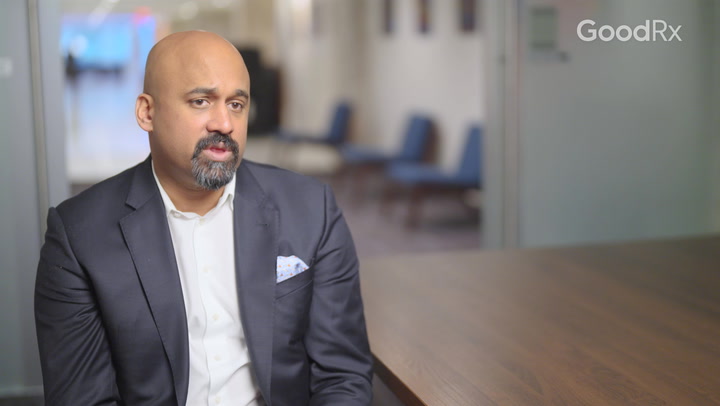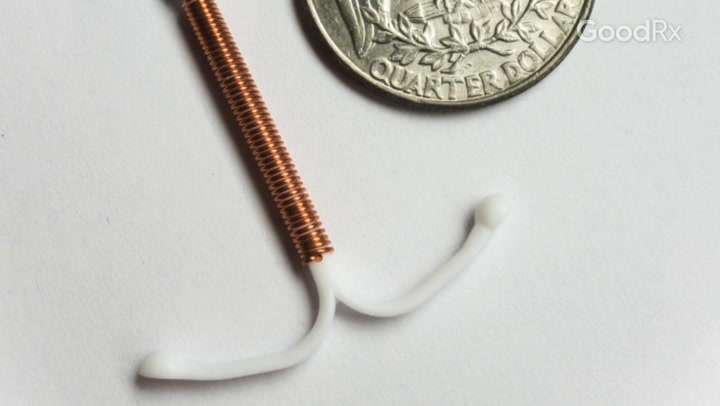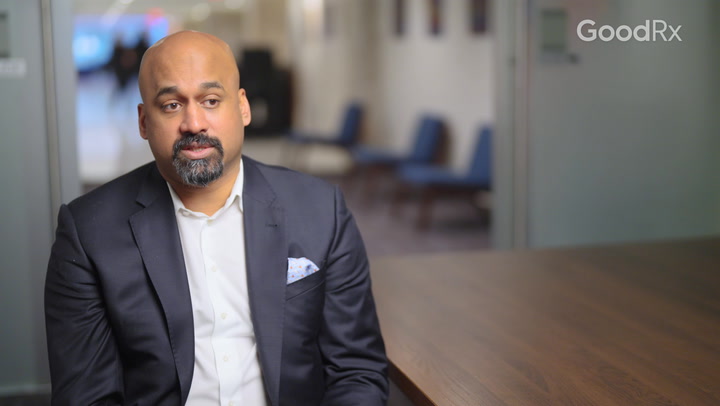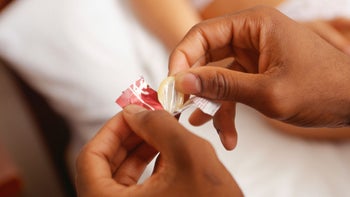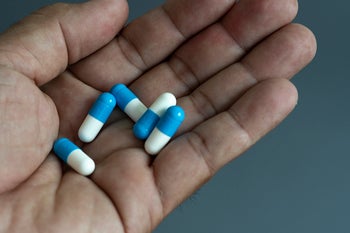
Sex Drive: What’s ‘Normal,’ and How Can You Change Your Libido?
Key takeaways:
Libido (sex drive) is a wide spectrum. It varies from person to person and can even change throughout your lifetime.
Many factors can affect your sex drive, including hormone levels, stress, medications, and underlying health conditions.
Having a low or high libido isn’t necessarily a problem — unless it causes issues in your life or makes you feel unhappy.
Table of contents
When it comes to your sex life, there are a lot of different factors at play. One thing that can definitely affect your sex life is your libido.
Your libido (sex drive) is your interest in sex. This includes having sex, thinking about sex, or having sexual fantasies. And trust us: There’s no right or wrong when it comes to your sex drive. Some people have a high libido. Others have a low or even non-existent libido. What really matters is how you feel personally about your sex life and whether it’s working for you.
That said, it’s totally normal to wonder from time to time how your libido compares with other people. Let’s take a closer look at what libido really is, what’s “normal” when it comes to sex drive, and how to make a change if you’d like to give your libido a boost.
What is sex drive (libido)?
Your libido is your overall interest in sex. It’s also sometimes called your ”sex drive.”
Libido is different from person to person. Some people have a high sex drive. This means they’re very interested in having sex, think about sex a lot, or have a lot of sexual fantasies.
Other people have a lower libido. This means they spend less time and energy having sex or focusing on sex in other ways.
Can natural supplements boost a woman’s sex drive? There are hundreds on the market claiming to increase a woman’s libido. Do any actually work? Find out which options are your best bet — and which to avoid.
Could your current medication be causing problems? Many common medications cause sexual side effects — including low libido. Take a look at these medications that could be affecting your sex life and see if yours are on the list.
Looking for tips for a better sex life? If you’re hoping to make changes in your sex life, there are many things you can do on your own. Check out these evidence-based tips for a better sex life, and see if there are any that appeal to you.
What’s considered a normal sex drive?
There’s no such thing as a normal or “average” libido.
Libido exists on a wide spectrum. Your sex drive might be very different from someone else’s, but that doesn’t necessarily mean there’s anything wrong with either of you. Your libido may also change at different points in your life based on many factors.
Also, it’s good to remember: Low libido and high libido aren’t necessarily a problem. It’s only a problem if it causes issues in your life, like relationship challenges or trouble with your self-esteem. For example, you may have a different sex drive than your romantic partner, which might cause conflict.
Read more like this
Explore these related articles, suggested for readers like you.
There’s also no real connection between your libido, and how often you have sex. You can have a very high libido but not have sex very often. And, you can also have a very low libido but still have a lot of sex. Your sex drive can also affect other activities, like masturbation and sexual fantasies.
What factors can affect your sex drive?
It’s totally normal for your libido to have ups and downs over time. After all, a lot of things affect your sex drive, such as your:
Hormones
Stress levels
Relationships
Life events
Physical and mental health
Personal beliefs about sex
Past sexual experiences
Physical enjoyment of sex
Let’s take a closer look at some common factors that affect your sex drive, from your teenage years to older age.
Puberty
When you’re a teenager, your sex drive can go up because of sudden hormonal changes. For example, testosterone levels rise sharply in young men starting at age 11 and peak around age 19. As a result, the late teens and 20s may be a time of high sex drive.
Menstruation
Your libido can be affected by your menstrual cycle. For some people, sex drive may rise during ovulation. This is the time in the cycle that an ovary releases an egg (usually about 2 weeks before the start of your period), and it’s when you are the most fertile. During this time, hormonal changes may lead to greater desire for sexual activity.
Mid-life relationships
In their 30s and 40s, many adults are in long-term relationships and/or have children. Sometimes being in a committed relationship can increase your sex drive. Other times, long-term couples find they have less sex over time — especially if there are challenges in the relationship.
Stress and fatigue from parenting, or from caring for aging parents, can also have a negative effect on your libido.
Age-related hormone changes
Testosterone levels in men start to decline leading up to age 40. This may cause a decline in sex drive. After the slight decline, testosterone levels typically remain pretty stable for the rest of the lifespan.
Menopause can also affect libido. Some people experience a drop in libido before, during, or after menopause — while others actually feel a higher sex drive. Certain menopause symptoms, like vaginal dryness, fatigue, or mood swings, can also have an indirect effect on your interest in sex.
Chronic health problems
For many adults, the 50s and beyond can bring new health problems. In fact, almost 80% of adults 55 and older have at least one chronic condition. Some chronic conditions may affect libido directly, while others may affect self-esteem and indirectly lower the desire for sex. Medications to treat certain conditions may also negatively affect libido.
Stress and mental health concerns
Stress at work, home, or school can have a big impact on your sex drive. When you’re stressed, your body makes more stress hormones, like cortisol. This is linked to a lower libido, especially if you’re dealing with ongoing stress in your life.
Mental health problems can affect your libido, too. Common conditions like anxiety disorders and depression can make it harder to be intimate with other people. And many medications used to treat these conditions can also cause sexual side effects like low libido, erectile dysfunction, and orgasm problems.
Medications
Many medications can have sexual side effects, including low libido. Common culprits include certain antidepressants, beta blockers, and statins.
Is there a difference in male and female libido?
It’s hard to say. It’s true that men and women do have different biological, cultural, and emotional factors that affect sex drive. This includes:
Different hormones, like testosterone, estrogen, and progesterone
Different cultural expectations about how to act and behave when it comes to sex
Different life transitions, like puberty, pregnancy, and menopause
But in reality, your libido is affected by many different things, and most don’t have anything to do with your biological sex. Biological sex is just one piece of the puzzle when it comes to your sex drive.
Quiz: Am I asexual?
Is it normal to not have a sex drive at all?
Yes, as long it feels like your authentic self.
Some people have a very low libido — or even no libido — by default. These people may identify as asexual, which is when a person has little to no interest in having sex. People who are asexual may still masturbate or have sex. They may also experience romantic attraction to others and desire to maintain committed romantic relationships.
Asexuality is a sexual orientation, just like being straight or bisexual. It’s not a disorder, it’s not a choice (like celibacy), and it’s not “caused” by any of the factors listed above. People who are asexual may not experience any emotional distress about their lack of sex drive, and they can live fulfilling lives — whether or not they engage in sex.
Can you increase your sex drive?
If you’re not happy with your sex drive, there are some things you can do to make a change.
First, it’s a great idea to figure out what’s causing your lowered libido. Though this can definitely be a challenge, it can help you know where to take action. Depending on the cause, you may be able to increase your libido by:
Managing stress
Getting enough good-quality sleep at night
Getting regular exercise
Practicing mindfulness
Eating a balanced diet
Cutting down on tobacco and alcohol
Taking natural supplements
Other times, you may need to see a healthcare professional to help boost your libido by:
Managing your medical problems, like diabetes or heart disease
Seeing a therapist
Working with a sex therapist or couples therapist
Working with your healthcare professional to change your current medication
Trying a prescription medication for low libido (for women)
Can you decrease your sex drive?
Some people may feel like their libido is “too high.” This may be the case if their sex drive feels out of control or threatens their relationship. A high sex drive may also get in the way of your daily life if you spend a lot of time having or looking for sex.
If this is the case, it may help to work with your primary care provider, mental health specialist, or sex therapist. They can help figure out if there are physical or psychological factors leading to a high libido. In some cases, treatments like cognitive behavioral therapy, antidepressant medication, or hormone blockers can potentially help — especially if your sex drive is causing problems in your day-to-day life.
Who should you talk to if you’re concerned about your sex drive?
If you’re bothered by your sex drive, it may be helpful to seek professional help. Your primary care provider is a good place to start. They may be able to help if there are underlying issues causing low libido, like medical problems or medication side effects. Or they can recommend a mental health professional — ideally one who specializes in sex therapy — to help you understand your sex drive and how to make a change.
The bottom line
There is no such thing as a “normal” sex drive. Libido is different for everyone and often changes throughout your lifespan. And, having a high or low libido isn’t in itself a problem — unless it’s having a negative effect on your life, or you feel upset or unhappy about your personal relationship to sex.
If your libido is a problem for you, help is available. Think about reaching out to your primary care provider or therapist. They can help figure out what’s causing your low or high libido, and explore ways to help you make a change.
Why trust our experts?



References
Bogaert, A. F. (2015). Asexuality: What it is and why it matters. Journal of Sex Research.
Centers for Disease Control and Prevention. (2015). Percent of US adults 55 and over with chronic conditions.
Elrafei, H., et al. (2022). Assessment and treatment of hypersexuality: A review. BJPsych Advances.
Hipp, L. E., et al. (2012). Exploring women's postpartum sexuality: Social, psychological, relational, and birth-related contextual factors. Journal of Sexual Medicine.
Kelsey, T. W., et al. (2014). A validated age-related normative model for male total testosterone shows increasing variance but no decline after age 40 years. PLOS One.
Marcinkowska, U. M., et al. (2023). Hormonal underpinnings of the variation in sexual desire, arousal and activity throughout the menstrual cycle – A multifaceted approach. Journal of Sex Research.
MedlinePlus. (2022). Aging changes in the male reproductive system.
National Institute on Aging. (2021). What is menopause?
Planned Parenthood. (n.d.). Sexual orientation.
Shirazi, T. N., et al. (2018). Menstrual cycle phase predicts women's hormonal responses to sexual stimuli. Hormones and Behavior.







